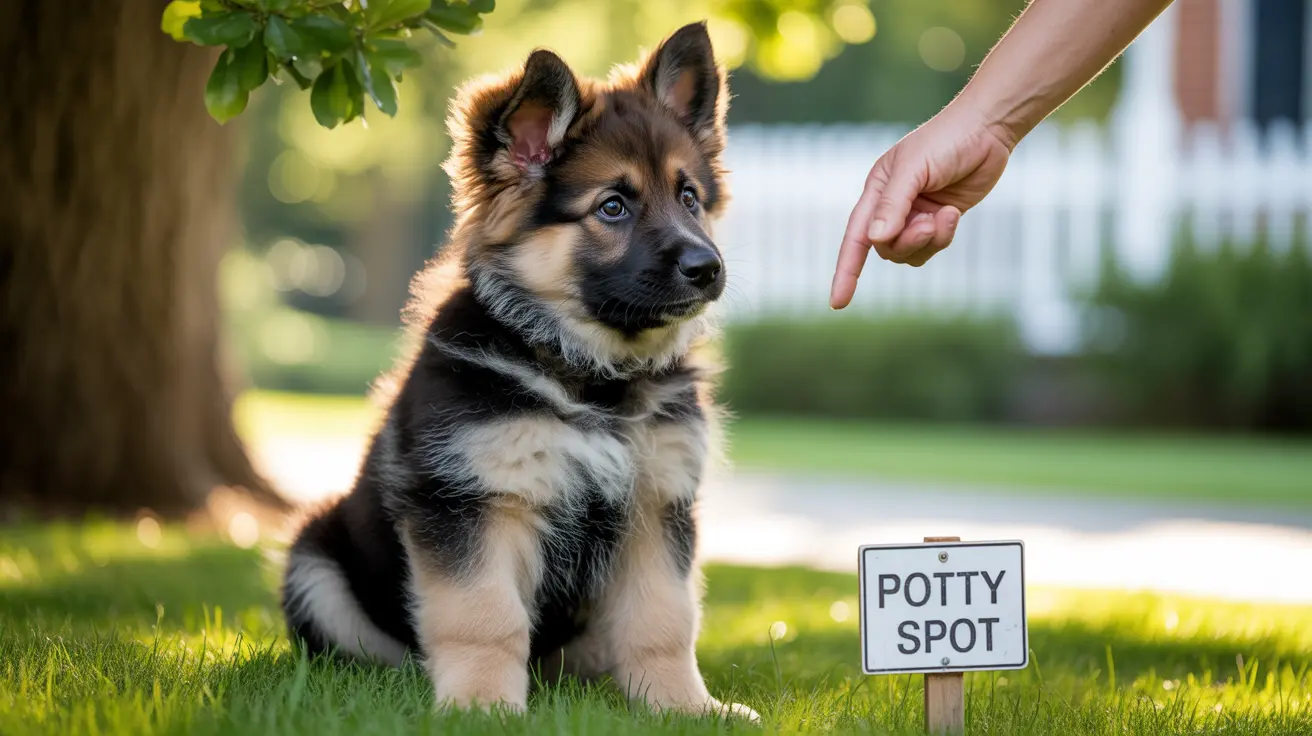Establishing a Strong Foundation
Start potty training your German Shepherd puppy as early as eight weeks old. These intelligent dogs thrive on routine and clear expectations. Create a consistent schedule for feeding, potty breaks, and exercise to help your puppy develop reliable bathroom habits.
Choose a specific outdoor potty area and always lead your puppy there when it's time to go. This consistency helps your puppy understand where it's appropriate to eliminate and speeds up the learning process.
Creating an Effective Potty Training Schedule
Young German Shepherd puppies typically need bathroom breaks every 1-2 hours during the day. Follow these crucial timing guidelines:
- First thing in the morning
- After meals and drinks
- Following naps or play sessions
- Before bedtime
- Once during the night (for very young puppies)
Using Crate Training for Success
A properly sized crate is an invaluable tool for potty training. German Shepherds naturally avoid soiling their sleeping area, making crate training particularly effective. Ensure the crate is just large enough for your puppy to stand, turn around, and lie down comfortably.
Never use the crate as punishment. Make it a positive space by providing comfortable bedding and appropriate toys. This creates a safe haven that supports your potty training efforts.
Positive Reinforcement Techniques
German Shepherds respond exceptionally well to positive reinforcement. Reward your puppy immediately after they eliminate in the designated area with high-value treats and enthusiastic praise. This creates a strong association between proper elimination and rewards.
Avoid punishment for accidents, as this can create anxiety and setbacks in training. Instead, interrupt accidents calmly and redirect your puppy to the appropriate spot.
Managing Common Challenges
Even with consistent training, challenges may arise. Watch for signs that your puppy needs to go, such as circling, sniffing, or whining. If accidents occur, clean thoroughly with enzymatic cleaner to remove all traces of odor that might attract your puppy back to the same spot.
During regression periods, which can happen during growth spurts or environmental changes, return to basics with more frequent potty breaks and closer supervision.
Frequently Asked Questions
How often should I take my German Shepherd puppy outside to potty during the day?
Take your German Shepherd puppy outside every 1-2 hours during the day, especially after meals, naps, and play sessions. Young puppies have limited bladder control and need frequent opportunities to eliminate.
What is the best way to use crate training for potty training a German Shepherd puppy?
Use a properly sized crate that's just big enough for your puppy to stand, turn around, and lie down. Make the crate a positive space, and use it for short periods when you can't directly supervise your puppy. Never use it as punishment.
How do I teach my German Shepherd puppy a potty command effectively?
Choose a simple command like "go potty" and consistently use it when taking your puppy to their designated spot. Say the command as they begin to eliminate, then immediately reward them when they finish. This creates a clear association between the command and the desired behavior.
What should I do if my German Shepherd puppy has accidents indoors during potty training?
Calmly interrupt the accident and immediately take your puppy to their designated outdoor spot. Clean accidents thoroughly with enzymatic cleaner to remove odors. Never punish your puppy, as this can create anxiety and make training more difficult.
When can I expect my German Shepherd puppy to be fully potty trained?
Most German Shepherd puppies can be reliably potty trained by 4-6 months of age with consistent training. However, individual puppies may take more or less time depending on factors like consistency in training, schedule, and individual development.
Conclusion
Successfully potty training your German Shepherd puppy requires patience, consistency, and positive reinforcement. By following this comprehensive guide and maintaining a regular schedule, you'll help your puppy develop reliable bathroom habits. Remember that every puppy learns at their own pace, and celebrating small victories along the way will help maintain motivation for both you and your furry friend.






